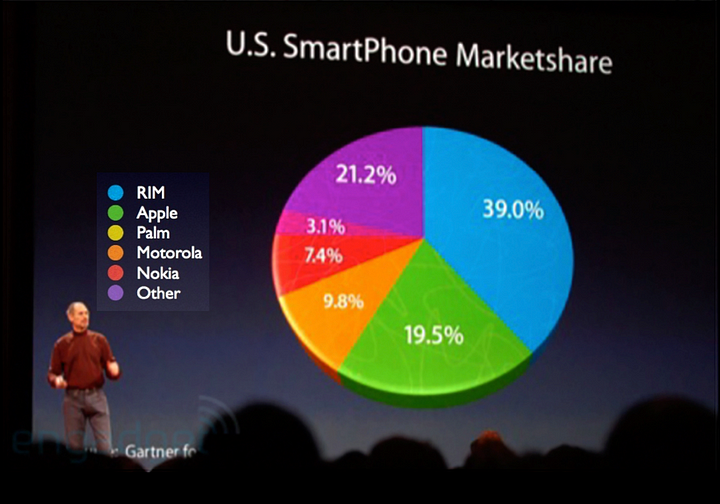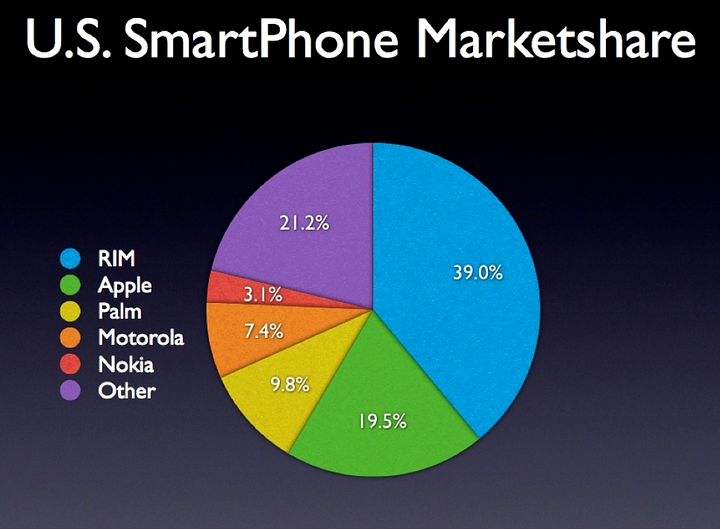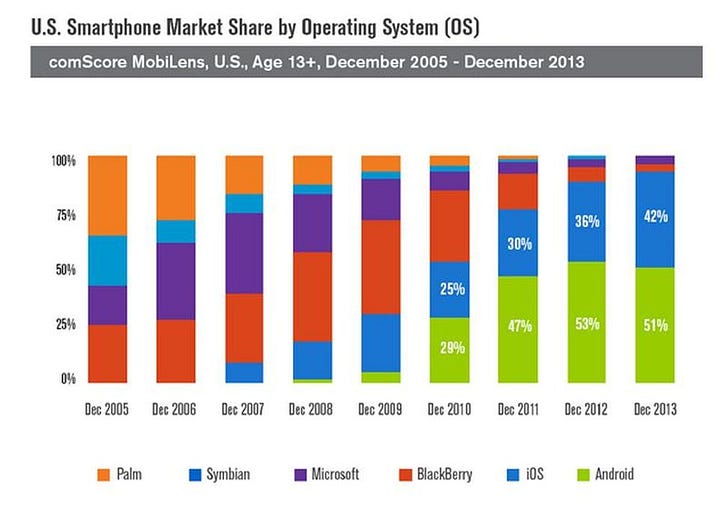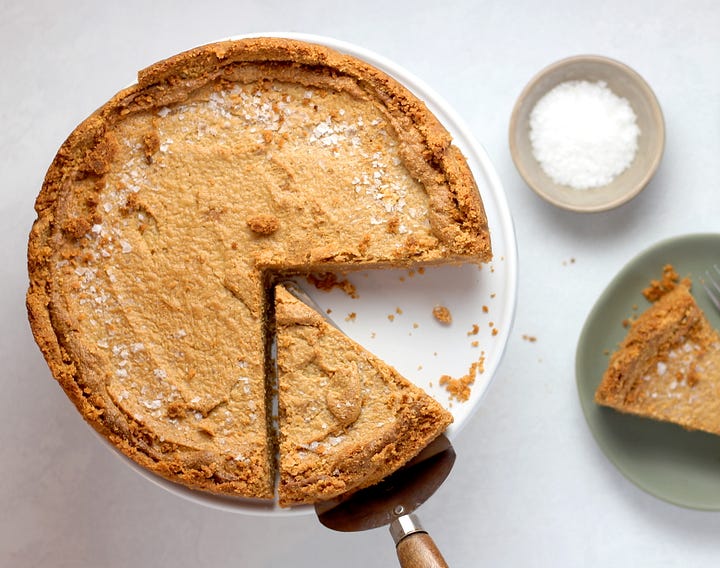Yet you’re all doing it intentionally.
Rule 1: Avoid 3D Versions of 2D Graphs
Without a doubt, they look prettier and any presentation software will give you an entire scope of them, yet profundity twists any chart where zone and position matter. Whenever done accidentally, this is misleading. Whenever done intentionally, this is a deceitful and shameful practice. See this slide from one of Steve Job’s 2008 Macworld Expo keynotes:

Notice how the “Apple” segment is at the very bottom, where the 3D effect distorts the size of the pie slice to make it look larger than it actually is.
We see that Apple’s 19.5% share actually looks larger than the purple slice, and almost as large as the blue slice. Jobs is misrepresenting Apple’s market share by adding depth to his pie chart. This is a much better version of the same pie chart:
We see that Apple’s 19.5% offer really looks bigger than the purple slice, and nearly as extensive as the blue slice. Jobs is misrepresenting Apple’s market share by adding depth to his pie chart. This is a vastly improved adaptation of a similar pie graph:

Honestly, you ought to never be doing this in any case since “flat” structures are extremely popular these days.
Rule 2: Avoid Pie Charts
Pie charts are really horrible since you can’t look at the areas between divisions effectively. They speak to information that can be communicated in 1-dimension in 2-dimensions, and therefore, includes an extra layer of unpredictability when you’re attempting to decipher the extents. Rather, utilize stacked bar charts. They may be all the more exhausting, however, all the statistics out there will thank you. Here’s an all the more convincing introduction of similar information from comScore / Forbes.

This portrayal is stunning as you can without much of a stretch think about the measures of the rectangles. Also, you can put stacked bar charts one next to the other to look at how an extent or worth changes across time, or across variations. You can watch Android and iOS duke it out while bemoaning the death of BlackBerry (RIP!)
PS: This is the only pie chart I’ll support!

Thank you and I hope you get the 2 golden rules of Pie Charts. Let me know your thoughts and ideas. Follow me on Twitter and LinkedIn.
Check out these two posts as well.
Because waterfalls are cleaner, clearer, calm and awesome!jayasekara.blog
Keen on getting to know me and my work? Click here for more!
Here are some interesting reads as a Thank you for staying till the end of the article. :)
- Data Visualization: A Practical Introduction ( https://amzn.to/2K2IDw1)
- Storytelling with Data: Visualization Guide:(https://amzn.to/2xhAHnY)
- Data Visualisation: A Handbook for Data Driven Design










0 Comments